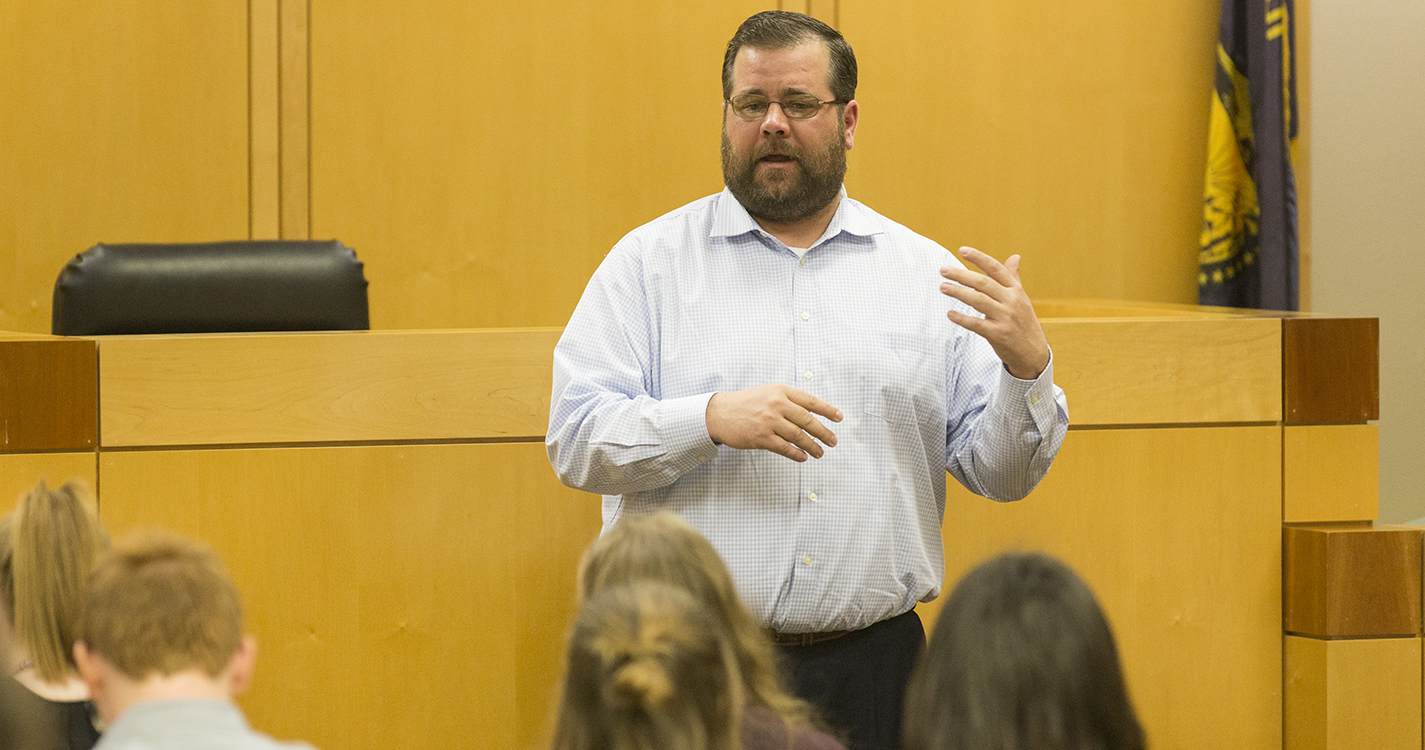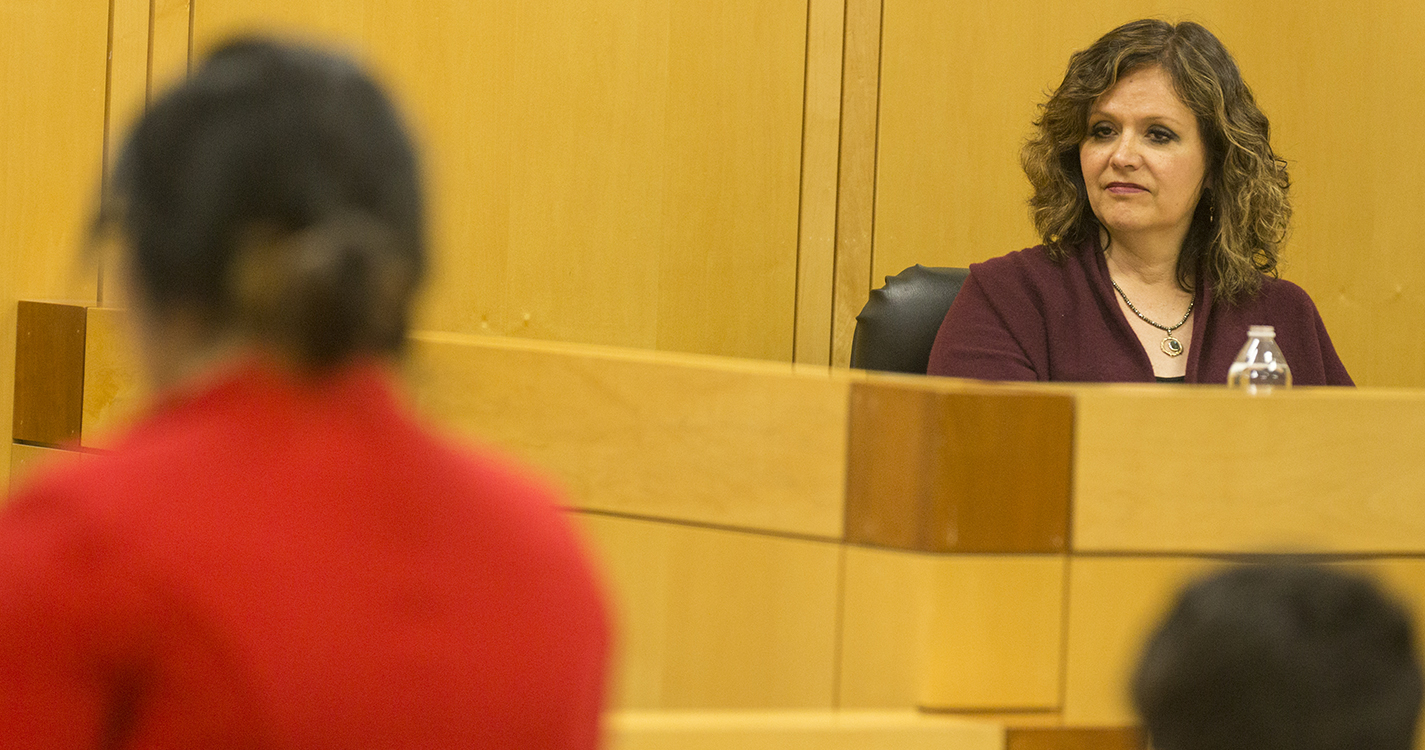Salem-Keizer high school students, on campus over spring break, tried a hot coffee-spill case during the Discover Law & Justice program held at Willamette Law. The three-day program, culminating in a final mock trial presided over by Judge Darleen Ortega of the Oregon Court of Appeals, was an opportunity for students to get up close with the law.
Over the course of three days, guest judges and lawyers taught the students lessons. On the final day, students took part in a mock trial to determine who was to blame in a case similar to the infamous Liebeck v. McDonald’s Restaurants. In that case, an elderly woman sued the restaurant chain over a cup of coffee that burned her after she spilled it on her lap.
“It was a good case to talk to the students about inequality in our legal system, because the McDonald’s case was a true ‘David and Goliath’ situation, and there is a lot of misunderstanding surrounding that case,” said Lauren Sharkey, executive director of Willamette’s Street Law student group.
Students were coached by current law students but completed the final trial on their own, giving opening statements, direct and cross examinations and closing arguments. Willamette 2L James Sullivan, a member of Street Law, helped the students understand the process of preparing for a trial competition.
“I think the students that attended were most benefited by gaining an understanding [of] how a trial works, gaining confidence, and being exposed to benefits of higher education,” Sullivan said. “They caught on to legal concepts quickly, worked hard to understand the facts, and did a great job presenting their case.”
Sharkey said Street Law presented the program to offer the students the chance to learn about the law and interact with law students, attorneys and judges. Law students benefited by using the time spent teaching to improve their own skills, Sullivan said.
“There are several student organizations that provide educational forums for law students,” Sharkey said, “but Street Law is unique in that it allows law students to impact a younger generation of students who are still figuring out what they want to do.”
Sharkey said mock trial is big in Oregon due to the Classroom Law Project, which is a nonprofit organization whose goal is to prepare the state’s “youth to become active, engaged and informed participants in democratic society,” according to its website. Despite its availability, Sharkey said five of the eight Salem-Keizer high schools do not have mock trial teams.
“The spring break program is filling that gap in opportunities for local students,” she said.
Street Law is an international organization that has been educating youth about law and justice for more than 40 years. This was the first year Willamette’s chapter put on the Discover Law & Justice program. In addition to running that, Sharkey said Street Law members teach a class at Salem’s Early College High School, run a mentor program with Willamette Academy and put on relevant community forums for the Salem-Keizer area.
About Willamette University College of Law
Opened in 1883, Willamette University College of Law is the first law school in the Pacific Northwest. The college has a long tradition at the forefront of legal education and is committed to the advancement of knowledge through excellent teaching, scholarship and mentorship. Leading faculty, thriving externship and clinical law programs, ample practical skills courses and a proactive career placement office prepare Willamette law students for today's legal job market. According to statistics compiled by the American Bar Association, Willamette ranks first in the Pacific Northwest for job placement for full-time, long-term, JD-preferred/JD-required jobs for the class of 2014 and first in Oregon for the classes of 2012, 2013, 2014, and 2015. Located across the street from the state capitol complex and the Oregon Supreme Court, the college specializes in law and government, law and business, and dispute resolution.


